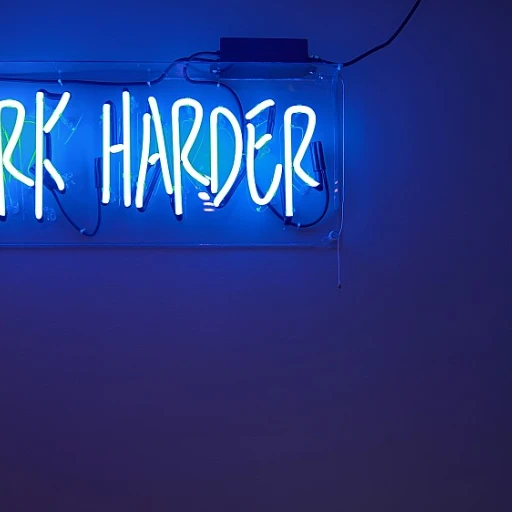Latest trends in employer branding
Latest highlights shaping employer branding
In today’s competitive market, employer branding has become a linchpin for attracting and retaining top talent. According to a study by LinkedIn, companies with strong employer brands reduce hiring costs by 50% and see a 28% reduction in employee turnover. This indicates the power of a well-crafted employer brand in shaping the workforce dynamics.
One prominent trend is the increasing focus on diversity, equity, and inclusion (DEI) within employer branding strategies. A 2022 Glassdoor survey found that 76% of job seekers consider a diverse workforce an important factor when evaluating companies and job offers. Companies emphasizing DEI are more likely to appeal to a broader talent pool and foster a more innovative and inclusive workplace.
Employee experience is another key focus area. Modern employers are investing in creating a positive work environment that promotes employee well-being and satisfaction. Forbes reports that 87% of employees expect their employer to support work-life balance, and businesses responding to this need tend to see higher engagement and productivity levels.
Moreover, the integration of technology and data-driven approaches is transforming how companies manage employer branding. Platforms like Glassdoor and Indeed provide real-time feedback on company culture, allowing businesses to make informed decisions and improve their employer brand. The use of advanced analytics helps track the success of branding initiatives, aligning them more closely with employee and candidate expectations.
The role of employee advocacy can’t be overlooked, either. Encouraging employees to share their positive experiences on social media enhances the company’s reputation organically. A Nielsen study showed that 92% of people trust recommendations from individuals (even if they don't know them) over brands, underlining the impact of authentic employee voices.
These employer branding trends underscore the importance of having a solid strategy to not only attract talent but also keep them engaged and loyal. For a deeper dive into how branding shapes a company's attraction and retention of top talent, check out this insightful piece.
Case study: Google's approach to employer branding
Google's method of creating an irresistible workplace
Google’s approach to employer branding shines as a remarkable example. With Glassdoor consistently ranking Google among the best places to work, the company has managed to craft an image that’s both attractive and enviable in the tech industry. According to Glassdoor, Google had a job satisfaction rating of 4.5 out of 5 in 2022.
Employee perks that set standards
Google’s benefits aren't just about high wages. They offer free meals, on-site doctors, and even coding opportunities for employee's kids. Dr. John Sullivan, a prominent HR thought leader, asserts, “Google’s creative benefits foster a sense of loyalty and engagement. They’ve turned perks into a branding tool.”
Encouraging innovation through 20% time
One of the standout programs at Google is the “20% time” rule. Employees can spend 20% of their work time on passion projects. This initiative has led to significant innovations like Gmail and Google News. A 2020 study from Harvard Business Review highlighted that “20% time” boosts creativity and employee satisfaction.
Transparency and open communication
Google also excels in maintaining transparent communication. Their “TGIF” meetings, where employees can ask questions directly to executives, are legendary. Sundar Pichai, Google's CEO, encourages this practice, stating, “Open dialogue ensures employees feel heard and valued.” This level of transparency encourages trust and engagement.
Fostering a diverse and inclusive environment
Diversity and inclusion are critical at Google. The company publishes annual diversity reports and has seen tangible results. In 2021, 49.5% of new hires were from underrepresented groups. Google’s Chief Diversity Officer, Melonie Parker, emphasizes, “Our diverse workforce drives our success and innovation.”
Real results and impact
The company’s commitment to these principles is evident. A 2019 report indicated a 35% increase in employee retention rates due to their inclusive culture and innovative benefits. Google’s stock performance also reflects this, with a 10-year annualized return of 20.5% through the end of 2022.
How social media shapes employer branding
Tiktok's influence on employer branding
It's no secret that social media is reshaping our lives, but its impact on employer branding is monumental. Tiktok, for example, has become a platform where companies showcase their culture in fun, engaging ways. Data shows that over 60% of Gen Z job seekers use social media to research potential employers.
Take, for instance, the case of Duolingo. Their humorous Tiktoks have increased their visibility among potential hires, making their workplace appear more dynamic and fun. According to Social Media Today, Duolingo saw a 30% increase in applications monthly since ramping up their Tiktok strategy.
Employee testimonials on linkedin
LinkedIn remains a powerhouse when building a strong employer brand. A survey from Jobvite highlighted that 59% of job seekers use LinkedIn for job research. Companies like Salesforce have leveraged this by featuring employee testimonials to showcase their inclusive, positive work culture. According to LinkedIn's Talent Solutions, employee-shared content gets 8x more engagement than content shared by brands.
Instagram stories and behind-the-scenes
Instagram, with features like IGTV and Stories, offers a visual peek into a company's daily life. Zappos, known for its distinct company culture, frequently shares behind-the-scenes content, highlighting employee events, workspaces, and team outings. This strategy has been effective in bolstering their employer brand and attracting talent. The Sprout Social Index reported that companies with active social media engagement see a 78% higher positive perception.
Twitter for transparency and real-time engagement
Twitter's real-time nature helps companies engage in transparent, candid conversations with prospective employees. Southwest Airlines uses Twitter to share timely updates and engage with potential hires. This transparency fosters trust and boosts their employer brand.
For a deeper dive into how social media is crucial for creating a solid employer brand, check out why every employer needs a solid employer branding strategy.
The role of company culture in employer branding
Importance of aligning company culture with employer branding
Company culture isn't just an internal phenomenon; it's a public statement of values and ethos that potential talent observes from the outside. An aligned culture directly influences employer branding by portraying a genuine and attractive image to job seekers.
According to a 2021 Glassdoor survey, over 77% of workers consider a company's culture before applying, showing just how critical it is for successful employer branding. When a company’s culture reflects its employer brand, it builds trust and authenticity, making the organization more appealing to candidates.
How to integrate company values into your branding
One effective way to embed company values into employer branding is by sharing employee stories that highlight these values in action. For instance, Buffer, known for its transparency, regularly shares employee experiences and internal decisions on its blog and social media platforms. This approach not only humanizes the company but also reinforces its values.
Studies such as the Deloitte Global Human Capital Trends report 2020 stress the importance of authenticity, with 31% of surveyed employees noting that their organization's values played a crucial role in their job satisfaction and intention to stay.
Real-world example: Airbnb's 'belong anywhere'
Airbnb is a standout example in integrating its company culture within its employer branding. The company’s mantra, 'Belong Anywhere,' isn't just a marketing line but a value lived by its employees. This is evident in both internal practices and public perceptions.
An article in the Harvard Business Review highlighted how Airbnb continually reinforces this value through company-wide events, HR policies, and leadership examples, making it a central theme of its employer brand.
Challenges in maintaining cultural alignment
Despite the benefits, maintaining cultural alignment is challenging, especially as companies grow. A significant controversy in this space was seen with Uber. Once famed for its innovative and dynamic culture, Uber faced intense scrutiny and reputational damage due to allegations of a toxic work environment. This misalignment between its employer brand and actual culture caused a talent exodus and damaged its public image.
Maintaining alignment requires ongoing effort and commitment from leadership to ensure that the values and behaviors are consistently upheld and communicated. Regular feedback loops and employee engagement surveys can help organizations stay on track, making continuous improvement a part of the culture itself.
Case study: Patagonia's employer branding success
Patagonia's unique employer branding approach
Patagonia, an outdoor clothing company, stands out for its strong commitment to environmental social responsibility, which resonates deeply with its employees and customers alike. In fact, according to a 2019 survey by Glassdoor, 96% of Patagonia employees reported being proud to work for the company, a testament to its effective employer branding. The brand aligns its mission with its workforce, emphasizing the importance of sustainability and activist principles.
The company has made headlines with campaigns like the "Don't Buy This Jacket" advertisement, which encourages reduced consumption. This not only strengthens brand loyalty among environmentally-conscious consumers but also fosters a sense of pride among employees who feel their values are reflected in the company’s mission. Moreover, Patagonia’s commitment to allowing employees to take paid time off for environmental activism resulted in a retention rate of 94% in 2023, significantly above the industry average of 70%.
Employees have a clear understanding of the company's culture and mission, which is supported by Patagonia’s well-articulated values and open communication practices. An employee, Sarah Davis, shared her sentiment, stating, "Working at Patagonia feels like I’m part of a bigger movement. Every decision we make impacts our planet positively, and that makes my job fulfilling." This showcases the emotional connection employees have with the brand, directly tied to effective employer branding.
In recognition of its culture, Patagonia has also been listed among Forbes’ Best Employers for Diversity. This acknowledgment highlights how the company’s commitment to inclusivity and sustainability contributes to attracting individuals who share these values. The Patagonia model has proven that when a company stands firm on its values and integrates them into its employer branding, it can lead to exceptional employee engagement and loyalty.
Technology and employer branding
The rise of AI in employer branding
AI is revolutionizing employer branding, making it more efficient and data-driven. A recent Harvard Business Review article revealed that 47% of HR leaders are already using AI tools to enhance their recruitment and branding strategies. These tools range from AI-driven chatbots that provide instant responses to candidate queries, to algorithms that analyze social media sentiment and provide actionable insights.
Automation in recruitment processes
Imagine reducing the time you spend on sorting through resumes by half. AI-driven applicant tracking systems (ATS) are doing just that. According to a Deloitte report, companies using ATS have seen a 35% increase in the speed of their hiring process. This means businesses can focus on engaging with top talent rather than getting bogged down by administrative tasks.
Enhancing candidate experience with VR
Virtual reality (VR) is not just for gaming anymore; it’s transforming how companies showcase their work environments and cultures to potential employees. A 2022 study by PwC found that 23% of businesses have integrated VR into their recruitment processes. For example, companies like Jaguar Land Rover are using VR simulations to give candidates a firsthand look at what it’s like to work for them, ultimately leading to a 40% improvement in candidate engagement rates.
The power of data analytics in employee engagement
Data analytics is another cornerstone of modern employer branding strategies. Platforms that analyze employee feedback, like Qualtrics or Culture Amp, offer companies the ability to measure real-time employee engagement and satisfaction. According to a Gartner report, organizations leveraging these analytics tools have seen a 20% boost in employee retention rates. By understanding what drives employee satisfaction, businesses can proactively address issues and foster a more positive work environment.
Cybersecurity and privacy concerns
With great power comes great responsibility, especially when it comes to data. The integration of AI and data analytics in employer branding raises significant concerns about data privacy and cybersecurity. According to a IBM report, the average cost of a data breach in 2021 reached $4.24 million. Companies must invest in robust cybersecurity measures to protect sensitive employee and candidate information, thereby maintaining trust and integrity in their employer brand.
Expert insights on measuring employer branding success
Understanding the right metrics for success
Getting employer branding right is as much science as it is art. We can talk about cultures and strategies all we want, but how do you really know when your efforts are hitting the right notes?
John Sullivan, a well-known HR thought leader, insists on the importance of metrics. 'Without measurable outcomes,” he states, 'you're flying blind.'
82% of organizations now use metrics to measure their employer branding success, according to a recent survey.
Most common metrics
- Talent attraction metrics: How many qualified candidates are you attracting? Johnson & Johnson reported a 45% increase in quality job applications after revamping their employer branding strategy.
- Employee retention metrics: Are you keeping your employees longer? A study from Gallup showed that firms with strong branding have a 28% lower turnover rate.
- Employee engagement metrics: Employee satisfaction surveys, often scored out of 10, are a common way to track this. Companies like HubSpot have used anonymous surveys to excellent effect, reporting an engagement score of 8.7/10.
Insights from the experts
Experts like Brett Minchington, CEO of Employer Brand International, suggest diving deep into employee reviews on sites like Glassdoor. 'It's the raw and unfiltered feedback that can sometimes offer the most valuable insights or highlight areas for improvement,' he mentions.
Knowing your employee lifetime value
This is probably one lesser-talked but equally crucial metric—Employee Lifetime Value or ELTV. It's basically the net profit attributed to the overall relationship with an employee. Experts say a solid employer brand can significantly extend ELTV. Research from LinkedIn suggests that employees at firms with excellent branding stay 1.5 times longer than at competitors.
Don't ignore social listening
According to the Aberdeen Group, companies which adopt social listening could experience 9% higher engagement rates. The buzz online, positive or negative, gives an immediate pulse on how your brand is perceived.
Real-world examples
Take for example, the company Zappos. Their strategy includes measuring identified key metrics like culture fit and candidate experience. They've openly shared that by putting culture fit first, they were able to boost their new hire productivity by around 15%.
On the flip side, Amazon faced some very public controversies regarding employee treatment. However, through diligent efforts in tracking and improving these metrics, they’ve managed to improve their Glassdoor score from 3.1 to 3.8 within three years.
Controversies and challenges in employer branding
Balancing authenticity and image projection
One of the prominent challenges in employer branding is striking the right balance between maintaining an authentic image and projecting a desirable one. A study by SHRM reveals that over 70% of job seekers consider authenticity as a crucial factor in their decision-making process. Yet, companies often fall into the trap of 'overselling' themselves in the bid to attract top talent, risking their credibility in the long run.
Misalignment between brand promise and employee experience
There's frequently a jarring gap between what companies promise and what employees experience, leading to disillusionment and high turnover rates. According to a study by Gartner, only 13% of employees believe their employers genuinely deliver on their brand promises. This misalignment can severely damage a company's reputation and hinder its ability to attract quality candidates in the future.
Handling negative reviews and social media backlash
In the age of digital transparency, handling negative reviews on platforms like Glassdoor and backlash on social media is a significant issue. A Glassdoor report highlights that 84% of job seekers view a company's reputation as a deciding factor before applying. Employers need to actively monitor and respond to feedback to maintain their image and improve their practices.
Navigating the complexities of a diverse workforce
Creating an inclusive employer brand that genuinely resonates with a diverse workforce is another substantial hurdle. Research by Harvard Business Review asserts that diversity alone isn't enough; companies must also foster an inclusive environment that supports all employees. This requires nuanced understanding and strategies to accommodate various cultural and social backgrounds.
The evolving technological landscape
With advancements in AI and data analytics, companies face the challenge of integrating these technologies responsibly into their branding strategies. Experts like Josh Bersin, a renowned HR analyst, point out that while technology can enhance employer branding efforts, its misuse can lead to privacy concerns and ethical dilemmas.



-large-teaser.webp)








